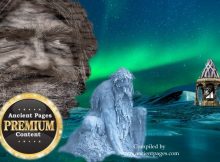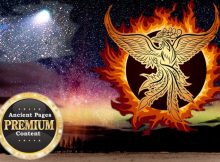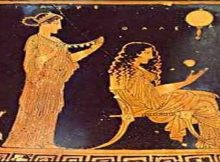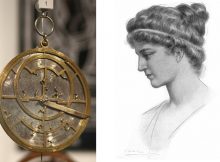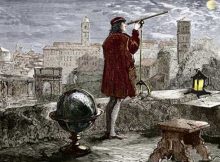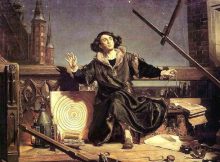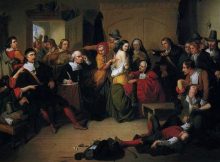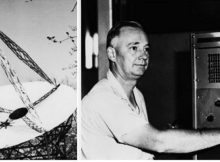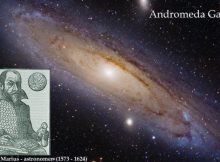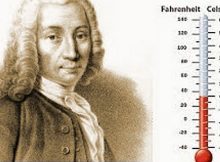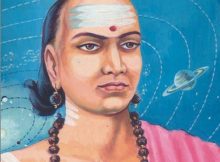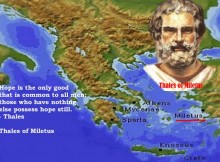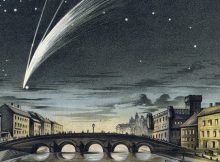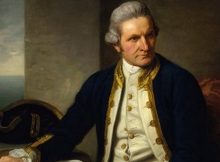astronomer Archive
Featured Stories
Ellen Lloyd - AncientPages.com - In part 1 we talked about how an astronomer combined scientific and historical data leading him to think he had located a big
Read More
Civilizations
Ellen Lloyd - AncientPages.com - Today widely recognized for his scientific achievement, the man whose work inspired future astronomers and other scientists ended tragically. He was open-minded, curious
Read More
Featured Stories
A. Sutherland - AncientPages.com - In ancient sources, Aglaonice (also Aganice) is mentioned as the first Greek female astronomer of the 2nd or 1st century BC and natural philosopher.
Read More
Featured Stories
Ellen Lloyd - AncientPages.com - Hypatia was a great ancient scholar who was more interested in science than religion. Her quest for scientific knowledge was admirable but clouded
Read More
Featured Stories
A. Sutherland - Ancient Pages.com - The Polish astronomer, Nicolaus Copernicus (1473 -1543) made crucial observations in Rome in 1500. Copernicus's heliocentric worldview was revolutionary and ended the old
Read More
News
AncientPages.com - On March 5, 1616, the Catholic Church banned Nicolaus Copernicus's book "On the revolutions of the heavenly spheres" (De revolutionibus orbium coelestium). Copernicus's conversation with God. Painting
Read More
Featured Stories
AncientPages.com - Johannes Kepler (1571-1630) is one of the world’s most famous astronomers. He defended Copernicus’s sun-centered universe and discovered that planets move in ellipses. Born in Weil der
Read More
News
AncientPages.com - On December 27, 1571, Johannes Kepler, ‘Father of Modern Astronomy’ was born. His three fundamental statements about planetary motion represent his work, which he based on detailed
Read More
News
AncientPages.com - On December 22, 1911, Grote Reber, amateur astronomer and radio engineer, was born in Chicago. He was a ham radio operator, studied radio engineering, and worked
Read More
News
AncientPages.com - On December 15, 1612, Simon Marius (1573 - 1624), a mathematician and astronomer, independently rediscovered the "Nebula in the Girdle of Andromeda," actually the Andromeda Galaxy (M31).
Read More
News
AncientPages.com - On November 27, 1701, Anders Celsius, a Swedish astronomer, physicist, and mathematician (1701-1744), was born. He invented the centigrade (Celsius) temperature scale commonly used in Europe and founded
Read More
Featured Stories
A. Sutherland - AncientPages.com - Varahamihira (505–587 CE) was an Indian astronomer, mathematician, and astrologer from Ujjain, which during the Gupta period (320 to 550 AD), was a flourishing
Read More
Featured Stories
A. Sutherland - AncientPages.com - Thales of Miletus is counted among the seven sages of ancient Greece. He is considered the father of Greek mathematics, as well as
Read More
News
AncientPages.com - On July 13, 1527, John Dee, English mathematician, occultist, astrologer, and astronomer, was born in London. Dee, one of the most learned men of his time,
Read More
News
AncientPages.com - On June 2, 1858, Comet Donati was first observed by astronomer Giovanni Battista Donati in Florence, Italy. Donati Comet is considered one of the most spectacular astronomical
Read More
News
AncientPages.com - On April 19, 1770, Captain James Cook spotted and claimed the East Coast of Australia. Cook was born in north-east England in 1728, and in his
Read More